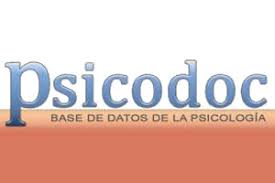View/Download
How to Cite
Medrano Vázquez, M., Rojas Russell, M. E., Serrano Alvarado, K., Flórez Alarcón, L., Aedo Santos, Ángeles, & López Cervantes, M. (2014). Association of body mass index and self-control with health related quality of life in overweight/obese people. Psychologia, 8(1), 13–22. https://doi.org/10.21500/19002386.1210
More Citation Formats
License terms
▼
This journal provides open, immediate access to its contents, based on the principle that offering the public free access to research helps to promote a higher global exchange of knowledge.
As such, all journal articles are published under a Creative Commons Attribution-NonCommercial-ShareAlike 4.0 International License (CC BY-NC-SA), by which commercial use of the original work or its possible derived works is not allowed, and the distribution thereof must be done with the same license elements regulating the original work.
http://creativecommons.org/licenses/by-nc-sa/4.0/
Abstract
The aim of this study was to identify the association of self-control with health-related quality of life and the possible mediation of the Body
Mass Index (BMI). A predictive cross-sectional study was conducted. Participated 273 adults, users of a primary health care center in Mexico
City, aged 18 to 65 years, with a BMI greater than 25. The SF-12 V1 and the Tangney, Baumeister and Boone’s Self-Control Scale were
applied. The results showed a significant association between self-control to physical and mental health quality of life; BMI was associated
with physical quality of life. No associations were found between BMI to mental quality of life and self-control. There were no evidence of a
mediation effect of BMI on the relationship between self-control and health-related quality of life. The results suggest that an overweight or
obese person with greater self-control has better perception of physical and emotional well-being, independently of BMI.
Mass Index (BMI). A predictive cross-sectional study was conducted. Participated 273 adults, users of a primary health care center in Mexico
City, aged 18 to 65 years, with a BMI greater than 25. The SF-12 V1 and the Tangney, Baumeister and Boone’s Self-Control Scale were
applied. The results showed a significant association between self-control to physical and mental health quality of life; BMI was associated
with physical quality of life. No associations were found between BMI to mental quality of life and self-control. There were no evidence of a
mediation effect of BMI on the relationship between self-control and health-related quality of life. The results suggest that an overweight or
obese person with greater self-control has better perception of physical and emotional well-being, independently of BMI.
Keywords:
Downloads
Download data is not yet available.





















